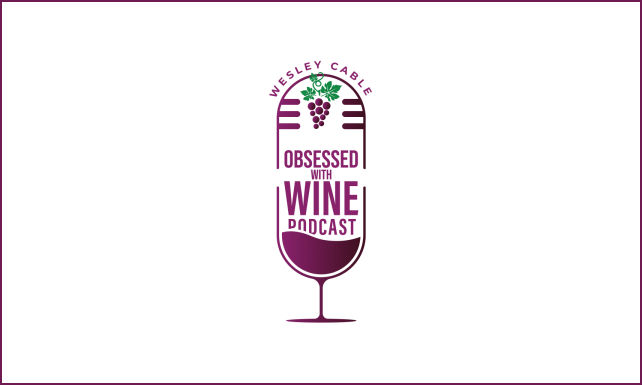I had the opportunity to interview Carlos DeJesus Marketing Director for Amorim Cork based in Portugal Amorim is the 1 Producer of cork in the world and produces over 50 of the worlds cork stoppers As a wine enthusiast I was blown away by how much I didn t know about cork and how fascinating a material it is You may not realize that cork comes from the bark of a cork oak an evergreen tree that s native to southwest Europe The cork oak tree is the only tree whose bark regenerates and each tree has a life span of around 200 years Each freshly planted cork oak tree takes 25 years to grow and produce mature bark that can be harvested and used to make cork The initial cork bark known as the virgin cork isn t useable for wine stoppers so it s harvested and used to make other cork products including flooring shoes insulation energy production and it s used in the aerospace industry After the first harvest you have to wait another 9 years for the bark to regenerate and be able to harvest the bark again The second bark growth known as the seconderia is also not mature enough to use for wine corks so again it is harvested and used for other products Finally after another 9 years the cork oak bark is mature enough to use to make wine cork closures Meaning it takes a new cork oak tree 43 years to be able to produce cork bark that can be used to make wine stoppers Thats incredible The production of cork is a highly regulated industry so it s illegal to cut down a cork oak tree and producers aren t able to harvest cork oak bark from a tree earlier than every 9 years According to Amorim harvesting cork oak bark is done between May and August and has to be done with precision to prevent from damaging the tree trunk Cork oak harvesters are highly compensated workers because of the amount of skill and attention to detail that s required Cork makes the perfect wine closures because it s practically impermeable to liquids and gases and its elasticity makes it perfect for sealing a bottle of wine It s also 100 natural and 100 reusable Not to mention its CO2 retainability which helps the environment In this interview we talk about how cork interacts with a bottle of wine the importance of sustainability to Amorim and we discuss the battle against TCA or cork taint

Listen to our podcast on podcasting success!


- Fortune Cookie Readings For The 20 Most Active Podcasters On The World Podcast Network!!! S3 E18
- The RIGHT Social Network For Your Podcast | S3 E17
- Does Your Podcast Have TOO Many Guests With Shari Post? S3 E16
- How Podcasters Can Succeed By Following Hulu's Strategy | S3 E15
- Guest Jodi Krangle Of The Audio Branding Podcast And The Podsafe Music Of Jess King | S3 E14 | Become A Successful Podcaster
- Podcast Guest Steve Guttman And The Podsafe Music Of Zaneta Z
- Podcaster Journey With Rapper And Podcaster Pryme Minister
- S3 E11: Dissecting Cast Magic's Output With Guest Greg Wasserman
- S3 E10 Successful Podcasters: Reena Friedman Watts Of The Better Call Daddy Podcast
- S3 E9 Why Podcasters Need Canva For Podcast Marketing
- S3 E8 How Does AI Define Podcasting And What Equipment Does AI Think You Need To Podcast?
- S3 E7 - Why Your Podcast Is Not Growing Fast Enough
- S3E6 - Podsafe Music 4th Of July With Shari
- S3 E5 - Does Your Podcast Need A Script?
- S3 E4 - Is SoundCloud Really A Good Platform For Podcasts? Should You Be On It?
- S3 E3 - How To Make Good Money Playing Podsafe Music On Your Podcast
- S3 E2 - Jay Fairbrother - Mastermind Groups For Podcasters Featuring The Music Of Lian Gold
- Why Are There So Many Podcasters Today? The Competition Out There And How To Survive. | S3 E1
- Meet Podcast Guest JoshPele Magic - Available Now As A Guest For All Podcasts | S2 E29
- Season 2 Bloopers, Funny Moments, & Inspiration Moments In 2022 With Co-Hosts And Guests
- What Are YOUR 2023 Goals For Your Podcast? Here Are Mine... | S2 E28
- The Reasons Your Podcast Needs A Holiday Episode | S2E27
- S2 E26 - Dave Jackson From The School Of Podcasting Tells What A Good Podcast Is
- S2E25 - Quora Marketing Basics For Your Podcast
- S2E24 - 7 Reasons Why There Are So Many Podcasters And How To Compete
- S2E23 - Secrets To Getting More Podcast Downloads
- S2E21 - 10 Ways To Make Your Podcast Episodes More Exciting For Your Audience
- S2E20 - Response To 2018 Episode On Podcast Network On School Of Podcasting
- S2 E19 I Listened To 1000 Podcast Episodes (Part 2) Here Is What The Most Successful Ones Do.
- S2 E18 - What Inspired YOU To Become A Podcaster?
- S2E17 - 7 Cool Ways To Make Your Audience Come Back Every Episode
- S2E16 - 3 Surprising Ways A Blog Will Grow Your Audience FAST!
- S2E15 - Simple 3-Part Marketing Strategy For Any Podcast
- S2E14 - Take Your Audience Along On The Date
- S2E13 Is Your Podcast More Successful With Seasons, Or NO Seasons?
- S2E12 - The Fastest Way To LAUNCH Your Podcast
- S2E11 - The FASTEST Way To Edit Your Podcast
- S2E10 -How To Get High Google Rankings For Your Podcast
- S2E9 - Would Elon Musk Invest In YOUR Podcast?
- S2E8 - The Most Sought Out Podcast Categories Summer 2022
- S2E7 - How To Improve Your Podcast By Listening To Others
- S2E5 - Fresh Music Series With Hugh Macdonald & Holland Nelson And Melo Mafioso
- S2E4 - Fastest Way To Make Money Summer 2022
- S2 E3 - Monthly Podsafe Music Show For Your Podcast - 5 Songs From Singer/Songwriter Doug Cash
- S2 E2 - Monthly Podsafe Music Show With Doug Cash, Winchester 7, And Bruce Chamoff
- S2E1 - Monthly Music Show With Winchester 7 And The Runners
- EP51 - The Right Way To List Your Podcast Guests
- EP50 - Running Out Of Episode Ideas? How To Brainstorm Fast!
- EP49 - How To Become An Influencer Through Your Podcast
- EP48 - Vik Rajan Of PhoneBlogger.net And Https://videosocials.net/
- E47: Rob Intellisano Of The Amazon Hit Gravesend
- EP46 - How To Build A Podcast Community With Adrian Miller
- EP45 - Easy & Fun Podcast Editing Tips W/Professional Podcast Editor Merrill Loechner
- EP44 - Marketing Your Show On LinkedIn With Marc Halpert
- EP43 - Benefits Of A Podcast Network With Guest Rich Butler
- E42 - What Makes You Successful With Guest Tim B
- EP41 - The Best Instagram Hashtags For Podcasts
- E40 - More Benefits Of Podcasters Blogging W/ The Delaware Blogger Guest Antionette Blake
- EP39 - Why Podcasters Need A Mobile App With Guest John Lee
- E38 What Makes YOUR Podcast Successful With Guest Frank Sasso
- E37 - Facebook/Instagram Down? What Affected Podcasters Can Do.
- E36 - How To Make Single-Host Podcasts Work
- E34 Q&A With Professor Pete Alexander: My Audience Has Dropped! Now What?
- E33: Upcoming Episodes For September And October 2021
- E32 Blogging For Podcasters - The Process
- E31 Why Blogs Make Your Podcast MORE Successful
- E30 The POWER Of Your Podcast's RSS Feed (Video)
- E29 - Subscribe To Your Podcast Competition?
- E28 PodcasterLinks.com And MediaGirlNetwork.com
- E27 Successfully Podcasting With Your Smart Phone
- Daily Podcast Success Update For 9/2/2021
- E26 Best Time To Monetize Your Podcast
- E25 Can You Podcast From The Airport? From Las Vegas...
- E24 Treat Your Podcast Like A Lobster Roll
- E22 Do Guests Really Enhance Your Show?
- Daily Success Update:Education Podcasts Wed, Aug 11, 2021
- E21 Connecting With Your Podcast Audience To Grow Faster
- Daily Success Briefing Fri, Aug 8, 2021
- E20 Search Engine Optimization Strategies For Your Podcast
- E19 Podcasting During The Delta Variant Of Covid19
- E17 How To Beat The Competition On Apple Podcasts
- E16 Rapid Podcast Editing & Avoiding Pod Fade
- E14 Dual Podcast With Guest Podcaster Antionette Blake Part 2
- E13 Dual Podcast With Guest Podcaster Antionette Blake Part 1
- E12 How To Get More Engagement For Your Podcast Episodes With Guest Interviews
- E11 My Special Guests: Jeff And Jim Wood Of SwimAble
- E10 Surprise Visit To Philadelphia And Atlantic City
- E9: Special Guest Dominique Carson Journalist & Certified Massage Therapist
- E8: 8 Fun Audacity Effects For Podcasters
- PodKnow 2021 Online Podcasting Event With Conference Speaker: Merrill Loechner
- E5: I Listened To Over 1,000 Podcast Episodes And Here Is What I Found The Best Ones Do.
- E4 - Buzzsprout Was Down On Sunday, Feb 21, 2021. What That Means For YOUR Podcast. My Reaction...
- E3: Five Things To Do Right Now To Grow Your Podcast Audience Fast.
- E2 - Should Podcasts Have Beautifully Produced Introductions With Voiceover And Background Music (and What Your Audience Thinks Of It)
- E1 - Become A Successful Podcaster - Keep Listeners On Your Podcast Episodes Longer
- Become A Successful Podcaster With Bruce Chamoff - Audience Growth, Monetization, Marketing & More! (Trailer)

